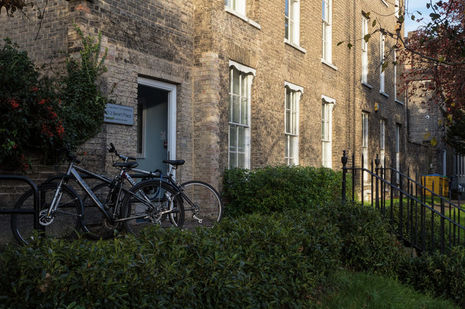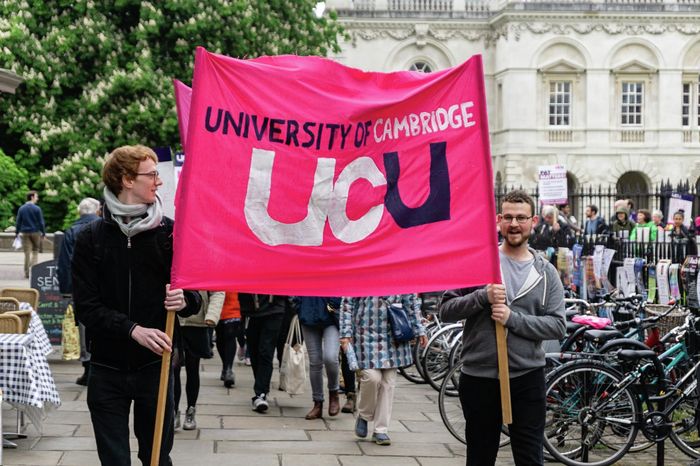Higher Education Policy Institute reports increased use of wellbeing services by University staff
The report describes a 62% increase in access to mental health services between 2014/15 and 2017/18

A report published on the 30th April by the Higher Education Policy Institute (HEPI), an independent education think tank, has described a sharp increase in the use of mental health and wellbeing services by University of Cambridge staff.
Entitled Pressure Vessels II: An update on mental health among higher education staff in the UK, the report shows an increase in the demand for counselling and occupational health referrals among academic and professional services staff at Cambridge in comparison to the results of a previous report, Pressure Vessels I.
The number of those employed by Cambridge University accessing counselling services rose by 62% between 2014/15 and 2017/18 .
Women were reported as disproportionately likely to request staff counselling within almost all higher education institutions (HEI) analysed, though this conclusion was formed through non-standardised data.
Cambridge saw one of the largest rises in occupational health referrals of all UK universities analysed in this period, increasing from 218 referrals of staff in 2009 to 782 in 2017.
Academic staff comprised a comparatively small number of those affected by these referrals, while professional services staff accessed occupational health services at a much higher rate. The report suggests that this indicates these staff members are disproportionately impacted by the pressures of the workplace.
The term ‘professional services staff’ refers to the non-academic staff responsible for a range of services, including but not limited to student support staff, administrators and library staff.
The report was compiled through Freedom of Information requests, and was used to compare percentage change in demand for counselling and occupational health services across 17 higher education institutions in the UK.
These results correspond with trends seen across all HEIs analysed in the report. In all 17 universities researchers found large scale increases in referral rates to counselling across a nine-year period, while most universities saw steep upward trajectories in annual referrals to occupational health.
The report notes that greater utilisation of support services may be reflective of improved access to such services, but that it may also be symptomatic of wider recorded trends in the decline in the mental health of university staff as described in the Pressure Vessels I report.
The Director of HEPI, Nick Hillman, stated that “after the current Covid-19 crisis is over, universities are going to have to pick up the pieces […], we need to build a virtuous circle by delivering supportive environments that strengthen institutions because they work well for all staff and students, rather than a vicious circle where institutions may succeed in the short term but people’s wellbeing is harmed.”
The report’s publication comes after extensive strike action by university staff over working conditions, pay and pensions throughout the 2019/20 academic year, including fourteen days of strikes between the 20th February and 13th March.
The University recently informed Varsity that it plans to persist with pay deductions for staff who undertook strike action within this period.
The issue of staff wellbeing has been controversial in recent months, following a report published by The Guardian in January which revealed that almost a third of Cambridge University staff have undergone bullying and/or harassment in the workplace.
A spokesperson from the University told Varsity that “the 22 percent increase in staff access to mental health support at the University of Cambridge last year and the split between genders are consistent with statistics across wider society in the UK, including Higher Education Institutions. Cambridge’s University Staff Counselling Centre is the most comprehensive of any Higher Education Institution in the UK.”
They added that “the University takes staff mental health very seriously and we do everything possible to ensure that our staff work in an environment in which they feel supported and safe.”
 News / Cambridge study finds students learn better with notes than AI13 December 2025
News / Cambridge study finds students learn better with notes than AI13 December 2025 News / Cambridge Vet School gets lifeline year to stay accredited28 November 2025
News / Cambridge Vet School gets lifeline year to stay accredited28 November 2025 Science / Did your ex trip on King’s Parade? The science behind the ‘ick’12 December 2025
Science / Did your ex trip on King’s Parade? The science behind the ‘ick’12 December 2025 News / Uni Scout and Guide Club affirms trans inclusion 12 December 2025
News / Uni Scout and Guide Club affirms trans inclusion 12 December 2025 Arts / Modern Modernist Centenary: T. S. Eliot13 December 2025
Arts / Modern Modernist Centenary: T. S. Eliot13 December 2025








